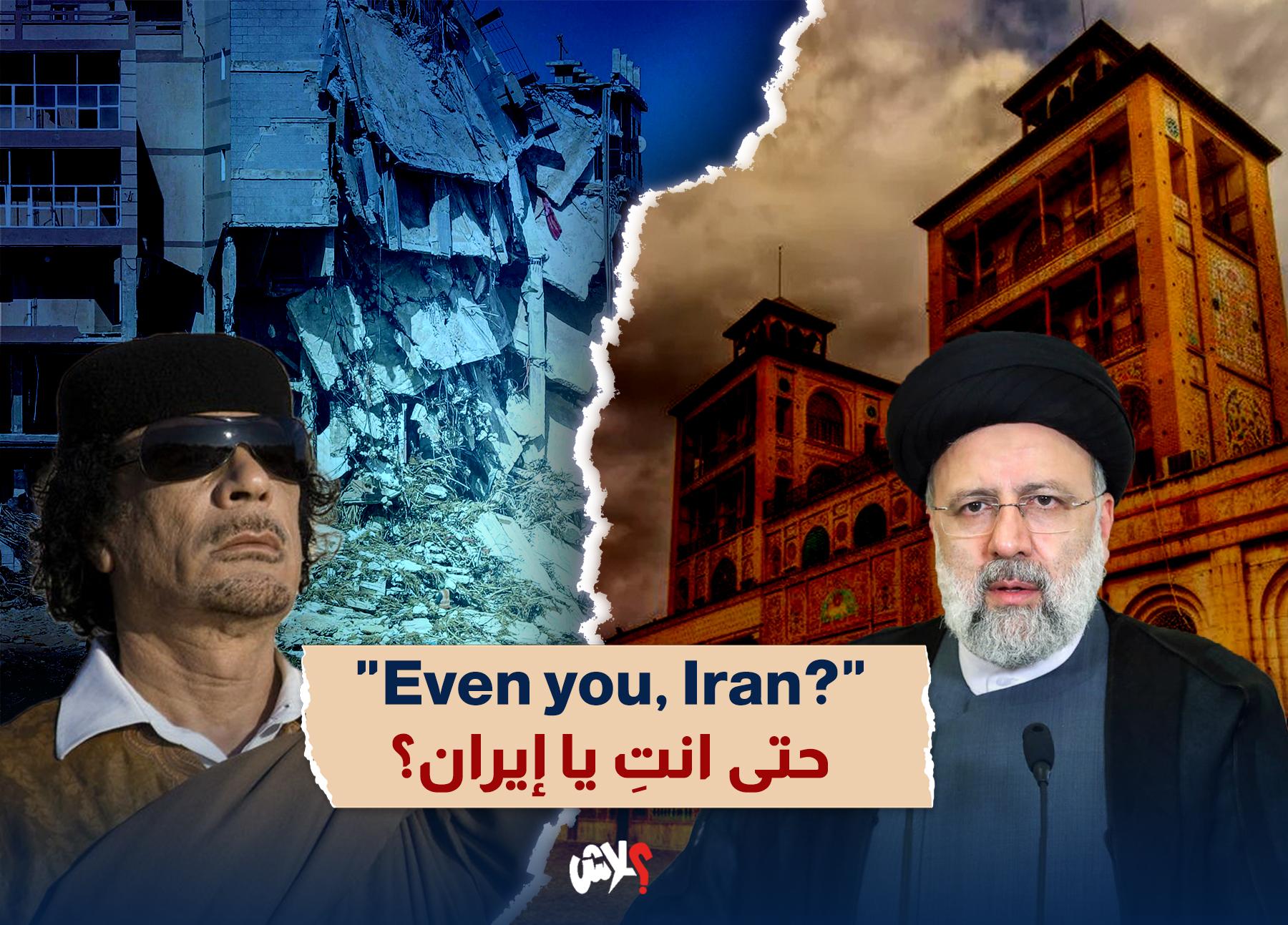Even You, Iran?
Like the rest of us sickened by politics and what happens in this mad world, we followed with interest the aftermath of the Iranian president's plane crash. Iran is part of a major conflict the world and more specifically the Middle East is witnessing. I watched an interview on an Arab channel with an Iranian academic, who was interviewed just an hour before Iran announced the president's death in the plane crash. The host asked the guest what might happen if the Iranian president had died, and the academic confidently and calmly replied, "Sir, we are a constitutional state, governed by stable bodies, and decisions are not made unilaterally, neither by the president nor by the Ayatollah. Even the latter has a council, and this council is elected, and Khamenei himself is elected by the council. Therefore, no chaos will occur in the country, as everyone knows their role, and their powers are defined according to their role."
After the February uprising and the ensuing chaos among a people who did not even have "two agreed-upon lines," there were faint voices that grew louder as the situation worsened, saying, "You have squandered our state!"
What we know is that a state in its modern concept does not rely on one or two individuals or a tribe. A state stands on permanent and stable institutions, as individuals' lifespans are short, no matter how long they live. Since a state is tied to the life of its people, it must be built on something relatively permanent. This permanence must be based on the concept of public consent, where the concept of consent is embodied in the true choice of the people for who represents these authorities or institutions. These individuals play their roles only, and when they are gone, their roles are transferred to others in the same mechanism. All this represents the concept of "the system."
The absence of this state is akin to people returning to their primal human condition, where they relied on power to rule each other, with power struggles leading to one person ultimately ruling. After their death, chaos ensues, creating another power struggle, with the strongest ruling. Thus, there was no lasting stability that would allow people to establish the features of a state in its modern concept.
This is a very simple diagnosis of what we believe we were in, meaning, dear reader, we have not stood as a people on any foundations for the past five hundred years. From the Turkish occupation, where we saw the Libyan proverb perfectly embodied, "A fish eats a fish, and the weak perish," to the Italian occupation in two phases, to a state of independence tainted by complete dominance of the great powers, to a leader and president (except for ten minutes) who determines how you live during the day, and his son comes out at night to confidently say, "My father took it with his gun, and whoever has the strength, let him come and take it," to a moment where a large part of this people despaired of living in a state and decided to try to change, only to discover they were living in a "village" where everyone is connected to the village chief. The disappearance of the chief in any way—death, revolution, or conspiracy—is enough to end everything that might represent the form of the state in the larger picture you thought existed.
Our goal in this effort was not to praise the Iranian regime, as we know and hear that a large part of the Iranian people rejects its practices. Rather, we specifically talk about the form of the state mentioned by the academic we started the article with. You can refer to Google to know how the ruling system in Iran is formed and compare it with what we had. Ask yourself one logical question: "Is it normal for a president, leader, or revolutionary leader of a state to die, and the state collapses after them?"
All logical answers to this question will tell you, "If it were a state, it wouldn't have collapsed." Every day, the world loses presidents, but states do not fall with their deaths. So what is the form of the state they are talking about—the eternal, crowd-sourced savior of humanity—that completed its course to the end and was lost after February?
What truly frightens us today is our attempt to return to square one, clinging to a savior whose death would destroy our future and that of our children. Truly, adhering to the constitution and to institutions established according to this constitution with clear tasks and mechanisms through which the leaders of these institutions can be changed peacefully is what is worth living and dying for if we want a state in the future.
Therefore, whenever you hear someone say that Libya was a state or that there is a person who can make Libya a state on their own, tell them: Have you heard about the death of the Iranian president?

